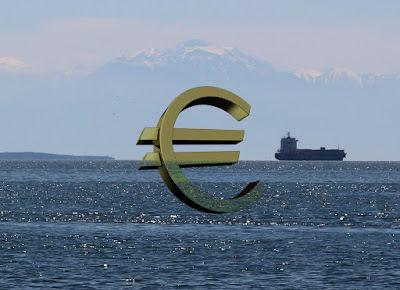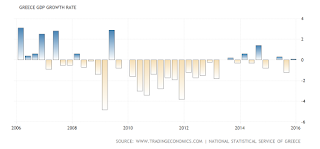Negative rates, financial stability and old-style bank robbers

One of the main means for a central bank to promote financial stability is to set the interest rate at which it lends to banks. The lower the rate, the bigger the incentive for banks to do loans to finance companies and consumers' projects. The relationship is straightforward as long as the interest rate stays positive. Indeed, if the interest rate turns negative, negative side effects start to come up, and the point of this article is to highlight those side effects. A Euro dipping in the Aegean sea, in front of Mount Olympus (picture from the author) 1. Which rates does a central bank set? A typical central bank actually sets 3 different rates: - Deposit facility rate (or fed funds rate in the USA) = defines the interest banks receive for depositing money with the central bank overnight. It is compulsory for banks to depose part of their capital at the central bank and this amount is called reserve. - Main refinancing rate (or discount rate in the USA) = defines th...

